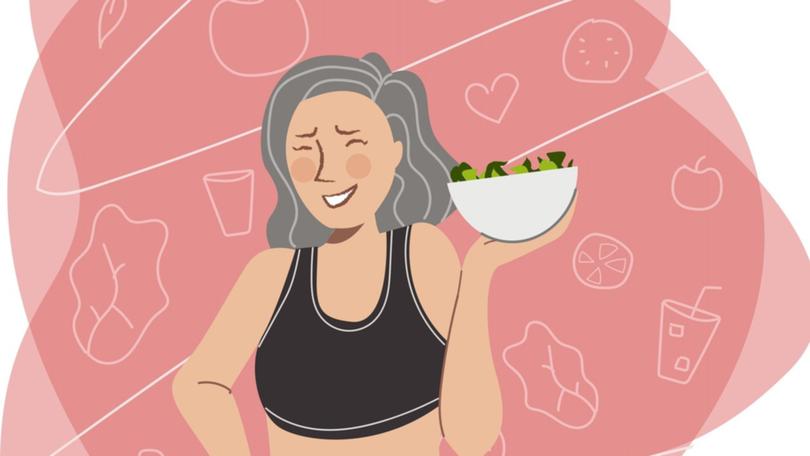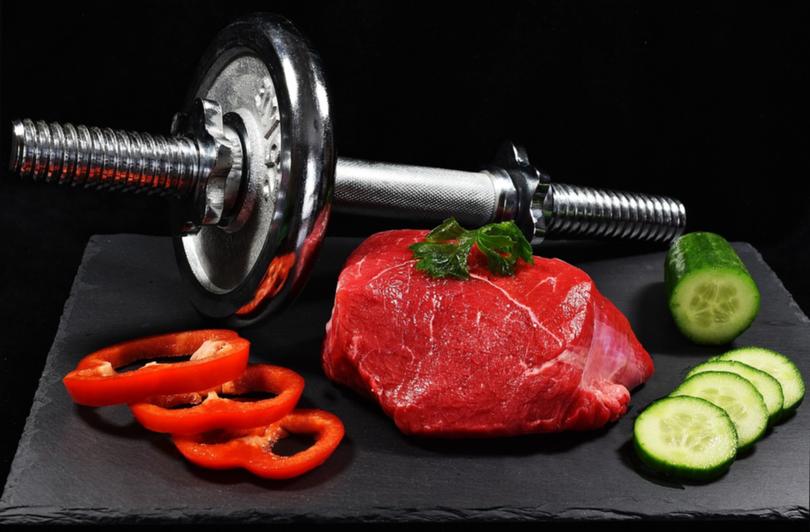Sarah Di Lorenzo: How to speed up your metabolism
From genetics to muscle mass, there are many factors behind each individual’s metabolic rate. But what exactly is it and what’s the best way to give yours a boost?

I have lost count of how many times patients have told me they can’t lose weight because they have a slow metabolism, or that all the years of their yoyo dieting have destroyed their metabolism but when I ask them about their metabolism many don’t even know what it is.
So I am going to break down everything you need to know about metabolism starting with what it actually is.
Metabolism is all the chemical processes in our body that are continuous for us to function.
Sign up to The Nightly's newsletters.
Get the first look at the digital newspaper, curated daily stories and breaking headlines delivered to your inbox.
By continuing you agree to our Terms and Privacy Policy.Metabolism includes breaking down nutrients from the food we eat for growth, development and repair.
When metabolism is running smoothly we refer to it as homeostasis. We measure energy in calories.
If we overeat more than what our metabolism needs then we store fat.
Metabolism has two parts, catabolism which is the breakdown of macronutrients (fat, protein and carbohydrates) and anabolism which is about repair.
Our metabolic rate or the energy we expend has three sections.
Our BMR or basal metabolic rate is the energy we expend to simply stay alive with heart pumping, and breathing which is around 50 per cent of our daily energy requirement.
Then there is thermogenesis or the thermic effect of food, which is the energy our body uses to process, absorb and transport nutrients from the food we eat which is around 10 per cent of our daily energy expenditure.
Then there is the energy we use in exercise such as planned exercise sessions but also incidental exercise. For the average person this is around 20 per cent.
The thing about metabolism is we are all unique, there are so many things that influence our metabolism.
Our basal metabolic rate is determined by how much muscle or lean mass we have, the more muscle then the more energy is used to maintain it because muscle is active tissue.
Now you can see why exercise is so important for weight loss and more useful than diets that are super restrictive, slowing down our metabolism to preserve energy.
I call this the desert theory, where our bodies store because they think we are stuck in a desert.
Muscle increases energy expenditure — that means weight loss and maintaining a healthy weight.
Other factors affecting our metabolism other than muscle mass include the amount of body fat we have, our age, gender, body size, genetics, history of fasting/yoyo dieting and crash diets.
Plus our genetics, hormones, nervous system, environment, immunity, current health status and use of stimulants including coffee impact our metabolism.
Deficiencies such as low iodine impact thyroid function and slow the metabolism.
Always get your thyroid checked if you are struggling with your metabolism.
So we now know how important it is to have a good functioning metabolism, can we speed it up?
Well, as mentioned what we eat impacts our metabolism, our BMR will elevate after we eat and will stay elevated for around two, even three hours.
Now if you eat protein your BMR will elevate to 30 per cent, carbohydrates 20 per cent and fats around 5 per cent.
Eating protein is harder work for the body to break down using more calories.
This is called the thermic effect of food.
So you can see why high protein diets are super important for weight loss.

Hot spicy foods like chilli, horseradish and all spicy foods speed up metabolism.
Chilli contains a compound called capsaicin that boosts metabolism and the caffeine in coffee has been shown to speed up metabolism.
When it comes to exercising, vigorous exercise — by this I mean breathless and struggling to chat — can burn around 500 calories per hour or 50 per cent of daily energy expenditure.
This is a 30 per cent increase from the 20 per cent mentioned above for incidental exercise.
As we age, we lose muscle, this is called sarcopenia. Therefore metabolism will slow with age unless you start actively resistance training and building muscle.
Many people are less active as they age, so a combination of a sedentary lifestyle and sarcopenia means a slow metabolism.
So if you want to speed up your metabolism, eat protein with each meal, exercise regularly, eat spicy foods, sleep well, lift weights, do more incidental exercise and drink coffee.

